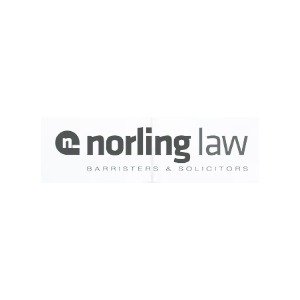Best Creditor Lawyers in Auckland
Share your needs with us, get contacted by law firms.
Free. Takes 2 min.
List of the best lawyers in Auckland, New Zealand
About Creditor Law in Auckland, New Zealand:
The area of Creditor Law in Auckland, New Zealand, is all about relationships between debtors and the creditors. It primarily focuses on protecting creditors who have lent money or provided goods or services, and not experienced repayment as agreed. Key subjects here include restitution, debts recovery, contract law, insolvency, and bankruptcy. It's a well-regulated field in New Zealand, with several laws and regulations enacted to maintain justice and fairness for all parties involved.
Why You May Need a Lawyer:
Legal advice is commonly sought in situations such as inability to collect a debt, disputes over contractual terms, issues concerning insolvency or bankruptcy and legal proceedings for debt recovery. A legal representative can guide you through the complex procedures and legal terms, protect your rights and interests, and advocate for you in court if necessary. Furthermore, if you are a creditor, understanding your rights and obligations by obtaining legal advice can help prevent costly errors.
Local Laws Overview:
Key aspects of relevant local laws for creditors in Auckland include The Credit Contracts and Consumer Finance Act 2003, which regulates consumer credit contracts, and The Property Law Act 2007, which outlines the rights and duties of both debtors and secured creditors. The Insolvency Act 2006 governs issues related to personal insolvency and bankruptcy while the Companies Act 1993 outlines the measures for corporate insolvency and liquidation. The Fair Trading Act 1986 regulates misleading and deceptive conduct in trade and ensures all debt collection activity is conducted in a fair and reasonable manner.
Frequently Asked Questions:
1. What are my rights as a creditor in Auckland?
As a creditor, you have rights to fair and equal repayment and to take legal action in case of default or insolvency of the debtor.
2. How can I recover a debt from a business?
There are several legal pathways to recover debt from a business, including making a formal demand, filing a claim in court, or initiating insolvency proceedings. A lawyer can help you choose the most appropriate method.
3. Can a debtor be forced into bankruptcy?
Yes, a debtor can be forced into bankruptcy if they owe more than a specific threshold, and have failed to make the payments. However, the process is legally complex and usually requires legal assistance.
4. What can I do if a debtor disputes the debt?
If a debtor disputes the debt, it's recommended to get legal advice. You may need to provide evidence regarding the debt, the agreement terms, and attempts at recovery.
5. What should I do if I receive a bankruptcy notice?
If you receive a bankruptcy notice, it's important to get legal advice immediately. Your response to a bankruptcy notice can have significant legal and financial consequences.
Additional Resources:
Bodies like the New Zealand Law Society can provide helpful information and resources for finding a legal representative. Additionally, the Ministry of Business, Innovation, and Employment provides guidelines and regulations about business-creditor relationships. Lastly, the Community Law Centre offers free legal advice and resources on a variety of legal matters
Next Steps:
If you need legal assistance with creditor issues, your first step should be to consult with a lawyer experienced in this field. They can help you understand your situation, review your legal options, and guide you in the best possible direction. You may also like to familiarize yourself with applicable laws and regulations to have an informed discussion with your lawyer.
Lawzana helps you find the best lawyers and law firms in Auckland through a curated and pre-screened list of qualified legal professionals. Our platform offers rankings and detailed profiles of attorneys and law firms, allowing you to compare based on practice areas, including Creditor, experience, and client feedback.
Each profile includes a description of the firm's areas of practice, client reviews, team members and partners, year of establishment, spoken languages, office locations, contact information, social media presence, and any published articles or resources. Most firms on our platform speak English and are experienced in both local and international legal matters.
Get a quote from top-rated law firms in Auckland, New Zealand — quickly, securely, and without unnecessary hassle.
Disclaimer:
The information provided on this page is for general informational purposes only and does not constitute legal advice. While we strive to ensure the accuracy and relevance of the content, legal information may change over time, and interpretations of the law can vary. You should always consult with a qualified legal professional for advice specific to your situation.
We disclaim all liability for actions taken or not taken based on the content of this page. If you believe any information is incorrect or outdated, please contact us, and we will review and update it where appropriate.












